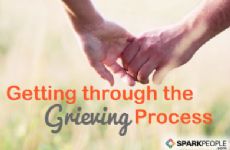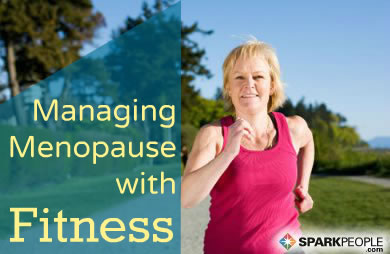|
Once upon a time I knew a guy from New Zealand who was teaching English in Korea to save money to move to Australia and study energy healing. He was vegetarian. He had a peaceful soul. He seemed to radiate an almost tangible calmness. I was battling anxiety, enjoying my youth, and indulging my every whim. I was miserable. I was constantly on edge. I had panic attacks regularly, drank too much alcohol and caffeine, and though I was losing weight and working out, I wasn’t the picture of health that I am today. How the two of us ever crossed paths, I’ll never know. One day, he held me. (Forgive me for venturing into the personal side, dear readers, but I promise it's germane to the story.) I was exhausted. I was defeated. For the first time in a very long time, a feeling of calm washed over me. I fought it at first, but I gave in. I stood still, my head against his chest, listening to the steady beat of his heart and the rhythm of his breath. My own pulse and breath slowed. I felt every muscle relax. The last time I saw Gareth, it was across a crowded room the night that I left Korea for good. I’m told that, much later that night, he stopped by my going-away party, only to find that I’d already left for the airport. I never got to say goodbye, or thank you. In January 2008, I wrote him: "…you had an effect on me, and I wanted you to know that. I was terribly lost in Korea, in the middle of a quarterlife crisis and a serious depression. With you, for brief moments, I felt peace and calm. I've emerged, stronger and healthier than ever. I start yoga teacher training in March, I'm now a fitness and nutrition writer for a health website, and I went vegetarian two years ago. I'm living in Cincinnati, Ohio, where I'm currently staring out at about six inches of snow and ice, though my mind keeps drifting farther east, to the land of the morning calm." He never wrote back, though I later heard he did head back to Australia to study the healing arts. People enter your life for reasons unbeknownst to you. I believe he entered mine to encourage me to seek a solution to my anxiety. Before then, I felt powerless against my anxiety. When crossing Seoul, I had to get off crowded trains and flee to the restroom to catch my breath and let the panic subside. I found myself paralyzed by fear and indecision, and I wished away precious moments. I needed prescription anti-anxiety medication. How did my life change? I wish I had a simple answer to share with you. I can say for sure that three things profoundly changed my life:
2. Eliminating and reducing stress by living in the moment 3. Committing myself to a regimen of regular exercise and healthy eating. Last Friday, Coach Nicole and Coach Jen each shared a link with me that bolstered my confidence in that list. First came the news that daydreaming may both help and harm your emotional well-being, according to Harvard researchers. While pondering the positive can help you learn to creatively solve problems or find happiness later on, letting your mind wander to stressful or neutral topics can negatively affect your overall level of contentment. In other words, my daydreams of returning to Italy to hike along the Mediterranean are beneficial if they help me find ways to actually do something. If I stare out the window and think about the massive piles of laundry that need to be folded, I’m just wasting time. According to the study, which prompted 2,250 people of all ages from 83 countries via an iPhone application to measure how they were feeling and report what they were thinking at various times of the day, participants spent almost half of their day—47% of the hours they were awake—in a distracted state. Of the 22 tasks they could report doing, most only stayed on task while being amorous. They reported were happiest when making love, talking, or exercising. When their minds wandered, 42.5% thought of pleasant topics, 26.5% thought of unpleasant topics, while 31% were thinking neutral thoughts. Even though letting the mind wander can be useful, the researchers concede, what’s better than daydreaming or stressing over your to-do list is to focus on living in the moment, they say. That's easier said than done, but it can be done. How You Can Live in the Moment
Consider Yoga to Boost Your Mood If you’re someone who’s also battling depression and anxiety as I did, that second link that Coach Jen shared might be of interest. (Of course, you should never stop treatment or start a new treatment without consulting with your health-care professional.) For the first time, scientists have found a connection between yoga and improved moods, using a brain scan. In fact, yoga might be more beneficial than walking or other forms of exercise when it comes to lifting your spirits. A group was randomly assigned to either a walking program or a yoga regimen for one hour thrice weekly for 12 weeks. Those in the yoga program saw larger improvements in mood and an increase in the brain chemical that reduces anxiety. To feel the effects of yoga, you needn't commit a large amount of time, and the only part of you that requires flexibility is your mind. Whether you stretch after a run or take a few minutes at your desk to move your body, you can feel the benefits of yoga. Yoga is Sanskrit for union, not contorting one's body into pretzellike shapes. "Yoga" in its simplest form can be a practice of uniting mind and body. Do you or did you suffer from depression and anxiety as I did? What methods did you use to cope? Has a person ever had a profound effect on your life even if they were in it for just a brief time? That's me in king pigeon pose on one of San Francisco's steepest hills. And that shirt? It's my favorite SparkPeople shirt. |
Popular EntriesMore From SparkPeople |







.png)














